OFFICIALS HOLD MEETING OVER COVID-19
입력 2021.07.13 (15:11)
수정 2021.07.13 (16:56)
읽어주기 기능은 크롬기반의
브라우저에서만 사용하실 수 있습니다.
[Anchor Lead]
The number of daily coronavirus cases in Korea is expected to soar to 2300 if the current trend persists. If the distancing measures produce effect, daily cases could fall to about 600 by the end of next month. Officials from the central and local governments gathered at Cheong Wa Dae to discuss ways to fight COVID-19.
[Pkg]
Presiding over a meeting on the COVID-19 situation in the Seoul metropolitan area, President Moon Jae-in called Level 4 restrictions an “emergency prescription.”
[Soundbite] Moon Jae-in(President) : "It’s the toughest measures we can implement to maximize vigilance and contain the outbreak as soon as possible without a lockdown."
Moon stressed if the nation manages to bring the COVID situation under control in a short period of time, it will be able to go back to normal life sooner and minimize economic losses. However, three quarters of quarantine centers in the greater Seoul area are already in use. The government has decided to secure 5300 more beds at college dormitories and hotels. It’s also considering allowing patients with mild symptoms to receive treatment at home.
[Soundbite] Kwon Deok-cheol(Health Minister) : "It’s important to secure more quarantine centers at this point, as the number of asymptomatic patients and those with mild symptoms is rising."
Some are also calling for intensifying on-site inspections to curb the number of infections. The government will launch inspections at seven types of high-risk facilities in the greater Seoul area, such as private academies, indoor gyms and bath houses. To detect hidden infections, 30 more screening stations will be set up in the capital region by investing 1.8 billion won from special disaster and safety taxes.
[Soundbite] Jeon Hae-cheol(Interior Minister) : "We will provide 250 military, police and administrative personnel to expand epidemiological investigations."
Starting from Tuesday, local governments in Seoul and Gyeonggi-do Province can conduct vaccinations according to their own plans. The Pfizer vaccine will be first administered to private academy tutors, delivery workers and street cleaners, whose jobs involve a lot of personal contact. Seoul Mayor Oh Se-hoon and Gyeonggi-do Province Governor Lee Jae-myung have requested health authorities to increase vaccine supply.
The number of daily coronavirus cases in Korea is expected to soar to 2300 if the current trend persists. If the distancing measures produce effect, daily cases could fall to about 600 by the end of next month. Officials from the central and local governments gathered at Cheong Wa Dae to discuss ways to fight COVID-19.
[Pkg]
Presiding over a meeting on the COVID-19 situation in the Seoul metropolitan area, President Moon Jae-in called Level 4 restrictions an “emergency prescription.”
[Soundbite] Moon Jae-in(President) : "It’s the toughest measures we can implement to maximize vigilance and contain the outbreak as soon as possible without a lockdown."
Moon stressed if the nation manages to bring the COVID situation under control in a short period of time, it will be able to go back to normal life sooner and minimize economic losses. However, three quarters of quarantine centers in the greater Seoul area are already in use. The government has decided to secure 5300 more beds at college dormitories and hotels. It’s also considering allowing patients with mild symptoms to receive treatment at home.
[Soundbite] Kwon Deok-cheol(Health Minister) : "It’s important to secure more quarantine centers at this point, as the number of asymptomatic patients and those with mild symptoms is rising."
Some are also calling for intensifying on-site inspections to curb the number of infections. The government will launch inspections at seven types of high-risk facilities in the greater Seoul area, such as private academies, indoor gyms and bath houses. To detect hidden infections, 30 more screening stations will be set up in the capital region by investing 1.8 billion won from special disaster and safety taxes.
[Soundbite] Jeon Hae-cheol(Interior Minister) : "We will provide 250 military, police and administrative personnel to expand epidemiological investigations."
Starting from Tuesday, local governments in Seoul and Gyeonggi-do Province can conduct vaccinations according to their own plans. The Pfizer vaccine will be first administered to private academy tutors, delivery workers and street cleaners, whose jobs involve a lot of personal contact. Seoul Mayor Oh Se-hoon and Gyeonggi-do Province Governor Lee Jae-myung have requested health authorities to increase vaccine supply.
■ 제보하기
▷ 카카오톡 : 'KBS제보' 검색, 채널 추가
▷ 전화 : 02-781-1234, 4444
▷ 이메일 : kbs1234@kbs.co.kr
▷ 유튜브, 네이버, 카카오에서도 KBS뉴스를 구독해주세요!
- OFFICIALS HOLD MEETING OVER COVID-19
-
- 입력 2021-07-13 15:11:26
- 수정2021-07-13 16:56:18
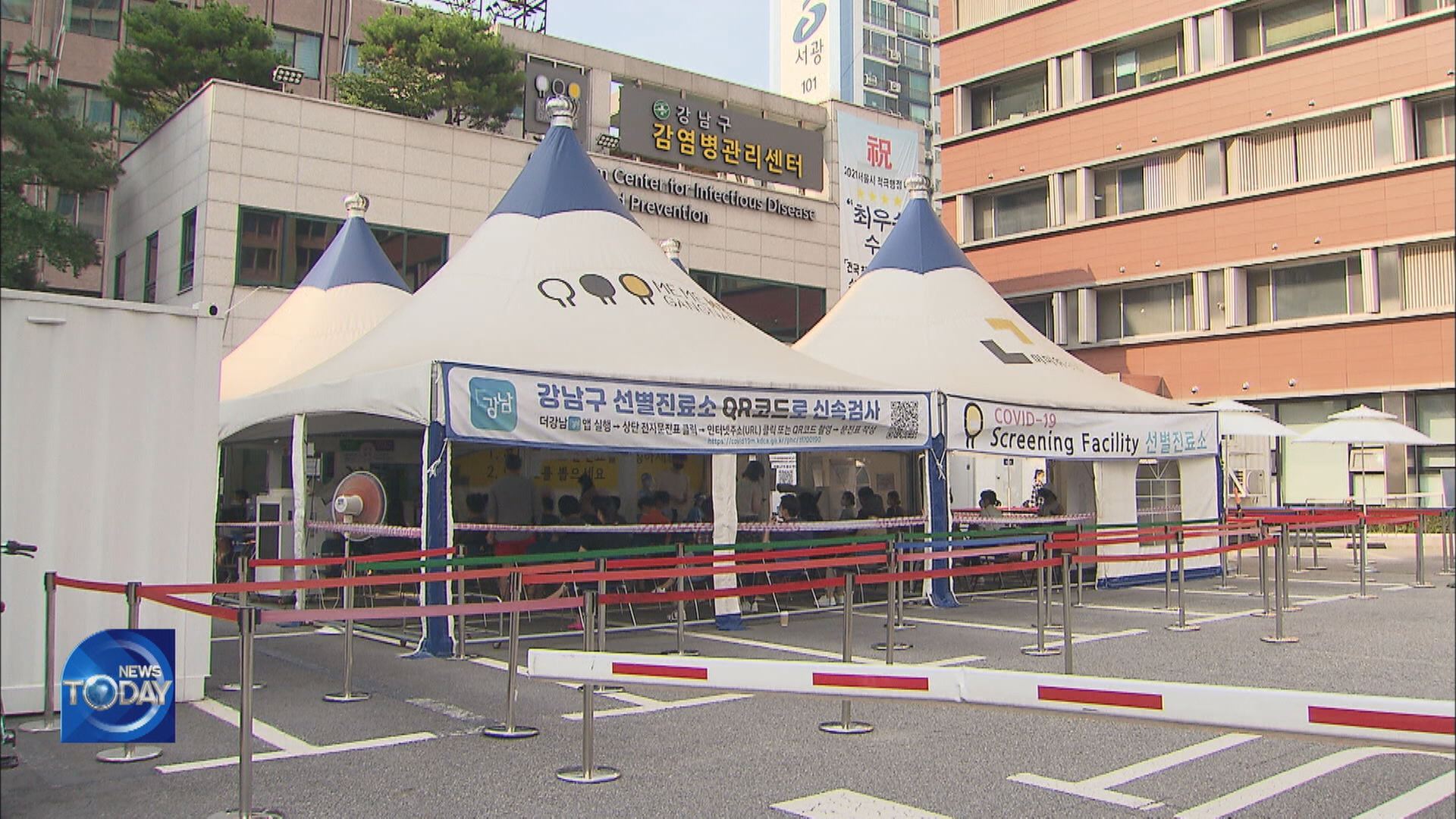
[Anchor Lead]
The number of daily coronavirus cases in Korea is expected to soar to 2300 if the current trend persists. If the distancing measures produce effect, daily cases could fall to about 600 by the end of next month. Officials from the central and local governments gathered at Cheong Wa Dae to discuss ways to fight COVID-19.
[Pkg]
Presiding over a meeting on the COVID-19 situation in the Seoul metropolitan area, President Moon Jae-in called Level 4 restrictions an “emergency prescription.”
[Soundbite] Moon Jae-in(President) : "It’s the toughest measures we can implement to maximize vigilance and contain the outbreak as soon as possible without a lockdown."
Moon stressed if the nation manages to bring the COVID situation under control in a short period of time, it will be able to go back to normal life sooner and minimize economic losses. However, three quarters of quarantine centers in the greater Seoul area are already in use. The government has decided to secure 5300 more beds at college dormitories and hotels. It’s also considering allowing patients with mild symptoms to receive treatment at home.
[Soundbite] Kwon Deok-cheol(Health Minister) : "It’s important to secure more quarantine centers at this point, as the number of asymptomatic patients and those with mild symptoms is rising."
Some are also calling for intensifying on-site inspections to curb the number of infections. The government will launch inspections at seven types of high-risk facilities in the greater Seoul area, such as private academies, indoor gyms and bath houses. To detect hidden infections, 30 more screening stations will be set up in the capital region by investing 1.8 billion won from special disaster and safety taxes.
[Soundbite] Jeon Hae-cheol(Interior Minister) : "We will provide 250 military, police and administrative personnel to expand epidemiological investigations."
Starting from Tuesday, local governments in Seoul and Gyeonggi-do Province can conduct vaccinations according to their own plans. The Pfizer vaccine will be first administered to private academy tutors, delivery workers and street cleaners, whose jobs involve a lot of personal contact. Seoul Mayor Oh Se-hoon and Gyeonggi-do Province Governor Lee Jae-myung have requested health authorities to increase vaccine supply.
The number of daily coronavirus cases in Korea is expected to soar to 2300 if the current trend persists. If the distancing measures produce effect, daily cases could fall to about 600 by the end of next month. Officials from the central and local governments gathered at Cheong Wa Dae to discuss ways to fight COVID-19.
[Pkg]
Presiding over a meeting on the COVID-19 situation in the Seoul metropolitan area, President Moon Jae-in called Level 4 restrictions an “emergency prescription.”
[Soundbite] Moon Jae-in(President) : "It’s the toughest measures we can implement to maximize vigilance and contain the outbreak as soon as possible without a lockdown."
Moon stressed if the nation manages to bring the COVID situation under control in a short period of time, it will be able to go back to normal life sooner and minimize economic losses. However, three quarters of quarantine centers in the greater Seoul area are already in use. The government has decided to secure 5300 more beds at college dormitories and hotels. It’s also considering allowing patients with mild symptoms to receive treatment at home.
[Soundbite] Kwon Deok-cheol(Health Minister) : "It’s important to secure more quarantine centers at this point, as the number of asymptomatic patients and those with mild symptoms is rising."
Some are also calling for intensifying on-site inspections to curb the number of infections. The government will launch inspections at seven types of high-risk facilities in the greater Seoul area, such as private academies, indoor gyms and bath houses. To detect hidden infections, 30 more screening stations will be set up in the capital region by investing 1.8 billion won from special disaster and safety taxes.
[Soundbite] Jeon Hae-cheol(Interior Minister) : "We will provide 250 military, police and administrative personnel to expand epidemiological investigations."
Starting from Tuesday, local governments in Seoul and Gyeonggi-do Province can conduct vaccinations according to their own plans. The Pfizer vaccine will be first administered to private academy tutors, delivery workers and street cleaners, whose jobs involve a lot of personal contact. Seoul Mayor Oh Se-hoon and Gyeonggi-do Province Governor Lee Jae-myung have requested health authorities to increase vaccine supply.
이 기사가 좋으셨다면
-
좋아요
0
-
응원해요
0
-
후속 원해요
0










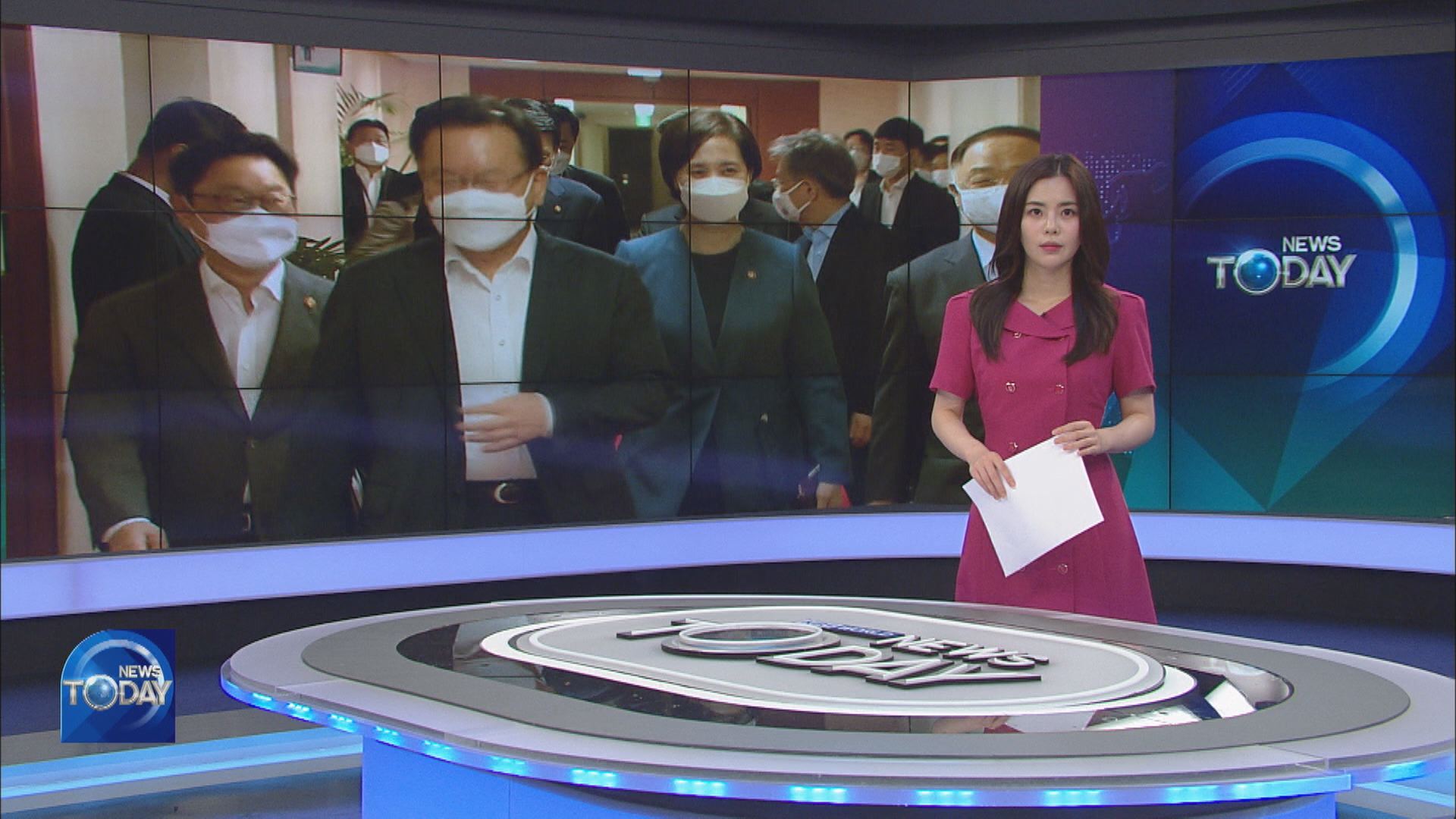
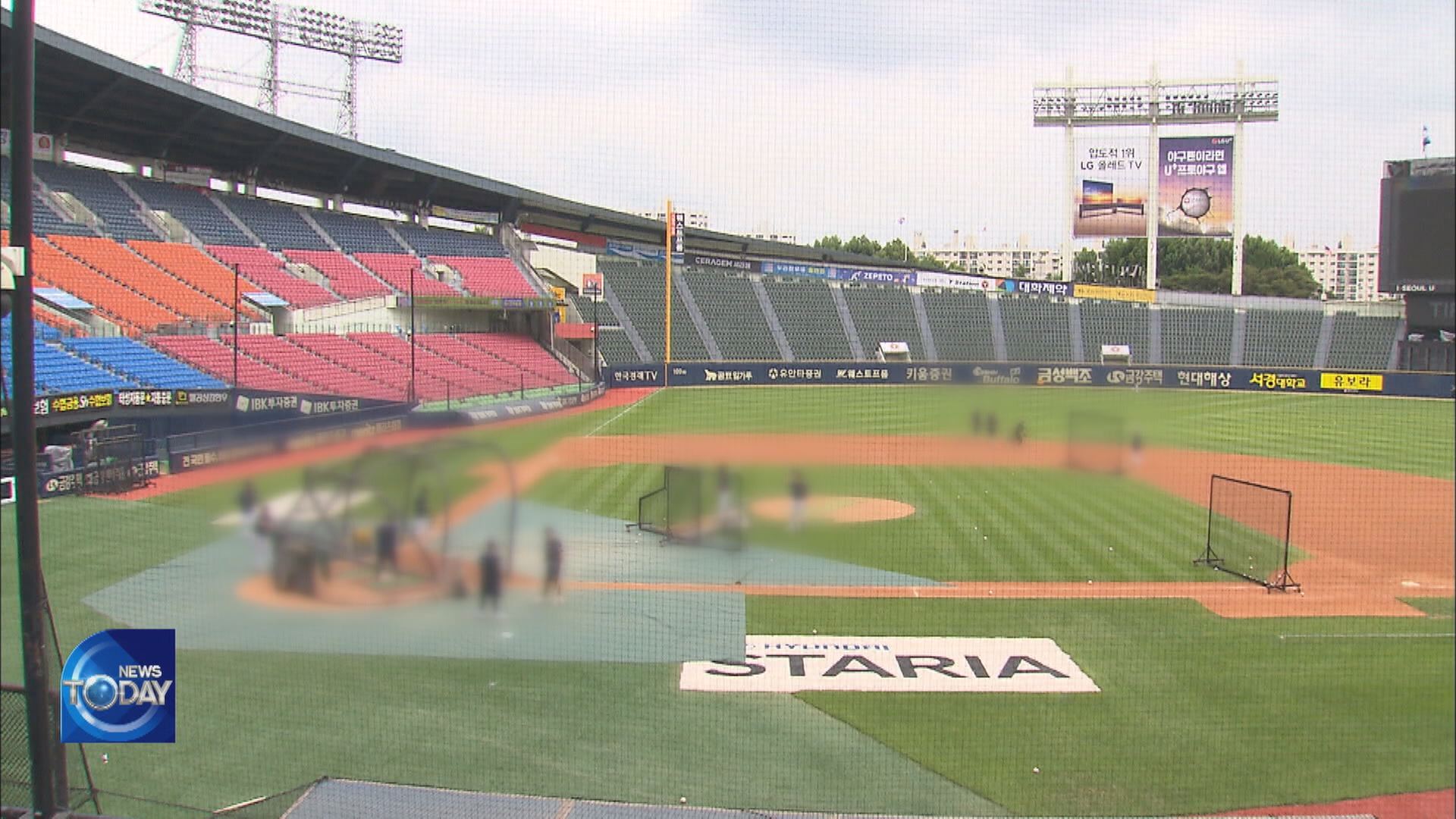
![[속보] 충남 금산군 금강서 물놀이하던 20대 4명 <br>실종…소방당국 수색 중](/data/news/2025/07/09/20250709_5MWZIH.jpg)
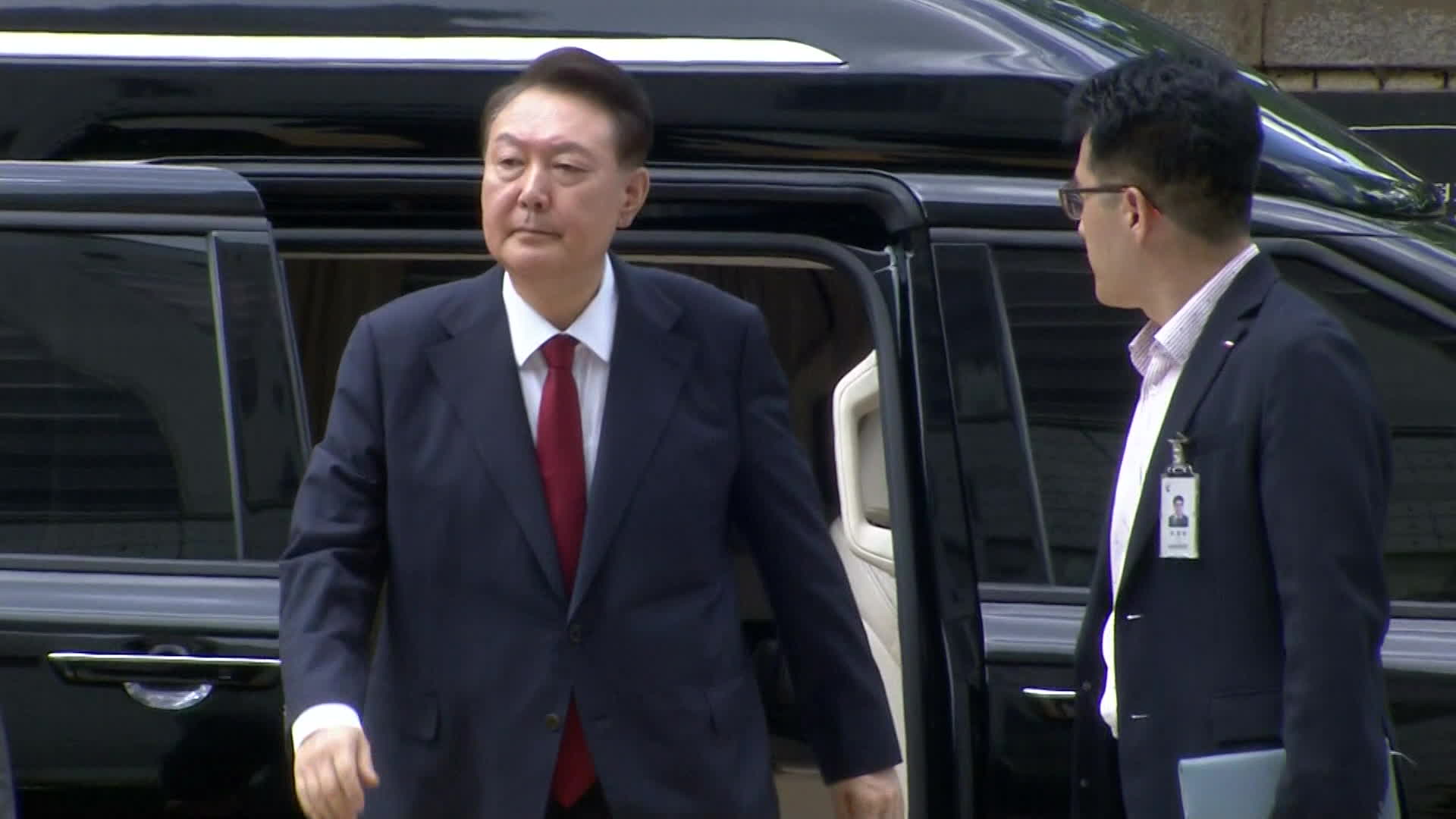
![[단독] ‘윤상현 또 다른 장소’ 추가 압수수색…휴대전화 여전히 ‘미제출’](/data/layer/904/2025/07/20250709_ATAI51.jpg)
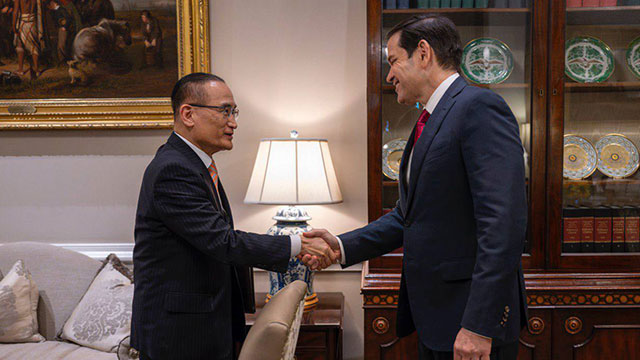

이 기사에 대한 의견을 남겨주세요.